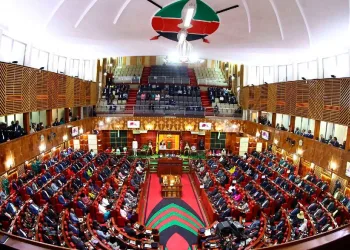The Kenya National Chamber of Commerce and Industry (KNCCI) reports that a majority of business owners anticipate a decrease in raw material prices in the second half of the year, driven by improved supply channels.
According to the chamber’s Quarterly Business Barometer Report for July 2024, 52% of businesses expect primary input prices to decline compared to the second quarter, while 35% remain uncertain.
This barometer serves as a key indicator of the country’s business environment, encompassing a wide range of enterprises from sole proprietors, such as Boda Boda operators, to multinational corporations. The report highlights that the education and agriculture sectors are particularly optimistic about falling primary input costs.
“Similar to Q2, the challenges expected to significantly impact business performance include limited financial resources (32%), unfavorable regulations (22%), and supply chain instability (22%),” the report states.
Conversely, the manufacturing sector is the least optimistic, with 14% of respondents not expecting any decrease in prices.
Overall, most sectors maintain a positive outlook for revenue growth in Q3, with mining, agriculture, education, and professional services showing the greatest optimism. This optimism is primarily attributed to anticipated customer demand, while those not expecting revenue growth cited declining customer demand as a significant concern.
All sectors expressed a generally positive outlook for staff size growth in Q3, although retail and wholesale, ICT, healthcare, and hospitality sectors exhibited more pessimism. The KNCCI emphasizes the need for increased support for these vital but struggling sectors.
High interest rates (31%) and limited access to credit (30%) are identified as the leading factors contributing to challenges related to financial resources. Additionally, 44% of respondents indicated that unfavorable taxes and levies are the primary cause of the adverse regulatory environment.
Data from the Central Bank of Kenya (CBK) reveals that SMEs account for 98% of all businesses in the country. The Business Registration Service estimates there are approximately 1.5 million formally registered micro, small, and medium enterprises (MSMEs) and over 5 million informal MSMEs, which collectively create about 30% of annual jobs.
Despite the significant role SMEs play in driving growth, their contribution to overall production remains limited.
The survey engaged 1,011 businesses across various sectors and was conducted over two weeks through an online platform and physical interviews in regions like Nairobi. The physical interviews were a new addition to the data collection methods used in the Q2 Barometer Survey, which relied solely on online surveys.
Kenya National Chamber of Commerce Reports Business Expectations for Raw Material Prices
Subscribe to receive the latest news updates, exclusive stories, and insightful articles straight to your inbox. Stay ahead with credible news coverage from Kenya and around the world.

















